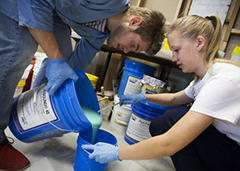Subscribe
Send feedback
Topics
- active learning (18)
- research assignments (6)
- libraries (1)
- literature-based learning (2)
- multimedia (5)
- museums (6)
- object learning (7)
- online learning (5)
- peer instruction (10)
- storytelling (2)
- learning management system (2)
- syllabus design (3)
- teaching empathy (3)
- teaching fellows (1)
- lecture (3)
- learning goals (8)
- assessment (6)
- data (3)
- backward design (3)
- blended approaches (12)
- case-based learning (8)
- classroom contracts (7)
- classrooms and space (3)
- collaborative learning (27)
- community events (1)
- course transformation (7)
- devices (3)
- learning by making (5)
- discussion (24)
- engaged scholarship (4)
- experiential learning (16)
- feedback (18)
- group work (8)
- guest speakers (7)
- interdisciplinary (6)
- leadership (3)
Copyright © 2024 The President and Fellows of Harvard College | Privacy | Accessibility | Digital Accessibility | Report Copyright Infringement

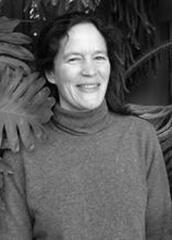 Robin Gottlieb, Professor of the Practice of Teaching Mathematics, aims to make mathematics accessible and exciting to all students in each of her courses. “When students come to Harvard, they have very different but set ideas of what happens in the classroom,” Gottlieb explains. “In many high school math classrooms, the dominant cultural norm is an ‘I do, you do, we do’ model. The teacher is expected to tell you what to do. One of my main objectives is to shift the culture of the classroom so that students become mathematical thinkers.” Gottlieb works alongside colleagues on the preceptor team to construct classrooms in which students actively participate in the development of ideas. Inspired by colleagues’ such as Eric Mazur’s active learning and John Asher Johnson’s
Robin Gottlieb, Professor of the Practice of Teaching Mathematics, aims to make mathematics accessible and exciting to all students in each of her courses. “When students come to Harvard, they have very different but set ideas of what happens in the classroom,” Gottlieb explains. “In many high school math classrooms, the dominant cultural norm is an ‘I do, you do, we do’ model. The teacher is expected to tell you what to do. One of my main objectives is to shift the culture of the classroom so that students become mathematical thinkers.” Gottlieb works alongside colleagues on the preceptor team to construct classrooms in which students actively participate in the development of ideas. Inspired by colleagues’ such as Eric Mazur’s active learning and John Asher Johnson’s 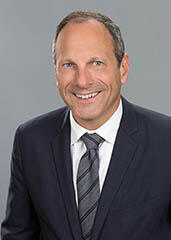 Scott Westfahl, Professor of Practice at Harvard Law School, intentionally develops students’ team-based collaboration skills in his law school courses on leadership fundamentals and innovation. Throughout the semester, student groups learn, reflect, and act on what makes a great team in real-time. Westfahl begins with a focus on the academic frameworks for successful teams. Then a series of scaffolded activities and assignments allow students to collaboratively reflect on what they want as a team, consider over time what is working and what isn’t, and work on projects throughout the semester. At the end of his
Scott Westfahl, Professor of Practice at Harvard Law School, intentionally develops students’ team-based collaboration skills in his law school courses on leadership fundamentals and innovation. Throughout the semester, student groups learn, reflect, and act on what makes a great team in real-time. Westfahl begins with a focus on the academic frameworks for successful teams. Then a series of scaffolded activities and assignments allow students to collaboratively reflect on what they want as a team, consider over time what is working and what isn’t, and work on projects throughout the semester. At the end of his 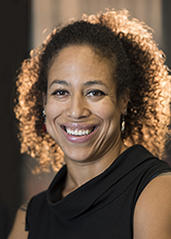 Cassandra G. Extavour, Professor of Organismic and Evolutionary Biology and of Molecular and Cellular Biology, is one of six co-instructors for
Cassandra G. Extavour, Professor of Organismic and Evolutionary Biology and of Molecular and Cellular Biology, is one of six co-instructors for 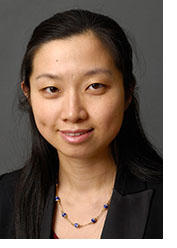 Jie Li, Assistant Professor of East Asian Languages and Civilizations, provides students with multiple opportunities to collaborate in General Education course
Jie Li, Assistant Professor of East Asian Languages and Civilizations, provides students with multiple opportunities to collaborate in General Education course 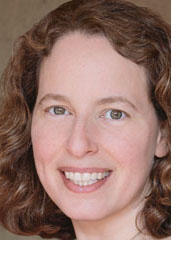 Meira Levinson, Professor of Education, develops case studies about difficult questions in educational ethics—for example, grade inflation, charter schools, and policies that disproportionately impact low-income students of color—for
Meira Levinson, Professor of Education, develops case studies about difficult questions in educational ethics—for example, grade inflation, charter schools, and policies that disproportionately impact low-income students of color—for 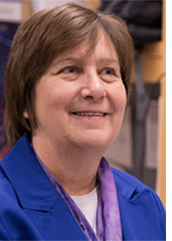 Marianne Wessling-Resnick, Professor of Nutritional Biochemistry, employs active learning strategies including debate, ‘
Marianne Wessling-Resnick, Professor of Nutritional Biochemistry, employs active learning strategies including debate, ‘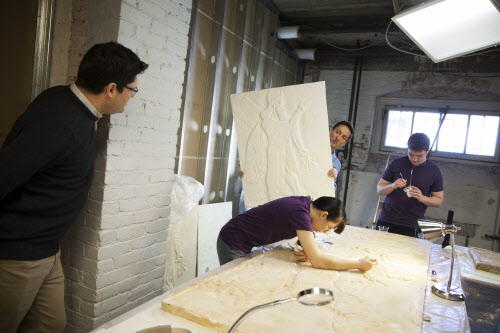 Gojko Barjamovic, Lecturer on Assyriology, increases student learning in
Gojko Barjamovic, Lecturer on Assyriology, increases student learning in 